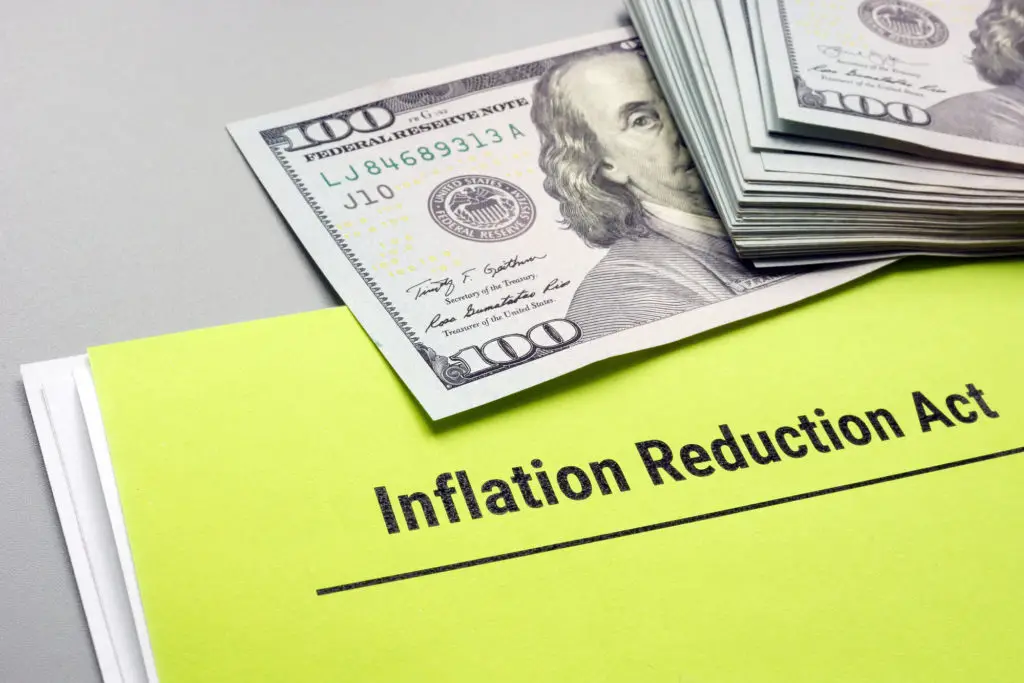 On August 12, 2022, Congress passed the Inflation Reduction Act (I.R.A.), a $739 billion measure intended to bring down inflation, encourage green energy activities to combat climate change, and make some other changes. How does this impact your business? It may be too early to know the full extent of the impact, but some aspects may directly or indirectly affect your business starting in 2023.
On August 12, 2022, Congress passed the Inflation Reduction Act (I.R.A.), a $739 billion measure intended to bring down inflation, encourage green energy activities to combat climate change, and make some other changes. How does this impact your business? It may be too early to know the full extent of the impact, but some aspects may directly or indirectly affect your business starting in 2023.
The Good
There are a handful of “good” provisions in the new law for small businesses:
Research credit. Small businesses, typically tech start-ups, with little revenue may use up to $250,000 of their research credit as an offset to payroll taxes. Starting in 2023, this is doubled to $500,000.
Energy-efficient commercial buildings. Owners and lessees that bring commercial buildings up to certain energy-efficient standards in 2022 can claim a tax deduction of $1.88 per square foot (or a partial deduction of 63¢ per square foot). Starting in 2023, the deduction limit is greatly enhanced. The deduction increases to $5 per square foot (with no partial deduction allowed). The deduction will apply to constructing commercial buildings and multifamily homes that are at least 4 stories as well as the costs of retrofitting older buildings.
Energy-efficient credit for homebuilders. In 2022, there’s a credit of up to $2,000 per dwelling (the credit had expired at the end of 2021 but I.R.A. extended it for 2022). What’s more, starting in 2023, the credit is increased to $5,000 per dwelling unit for single-family and multifamily homes. Energy-efficient criterial will be set by the Department of Energy. And wages will have to meet prevailing rates at the local level, to be determined by the Department of Labor.
Clean energy vehicles. The tax credit for buying a new qualified new electric vehicle, plug-in hybrid vehicle, and a hydrogen fuel vehicle will change in 2023 in a number of ways, other than the maximum credit amount, which remains $7,000:
- The 200,000 vehicle limit for manufacturers is eliminated
- A new purchase price cap will apply
- A new modified adjusted gross income limit will apply; only individuals with income below the limits will be able to claim a credit
- There are new critical minerals and battery capacity requirements
Also starting in 2023, is a new tax credit for purchasing a used clean vehicle. Again, vehicle price and income limits (different from those for new vehicles) will apply.
And there’s a tax credit for purchasing commercial clean vehicles. The credit is up to $7,500 for those weighing under 14,000 pounds and $40,000 for commercial vehicles weighing 14,000 pounds or more.
Alternative fuel refueling property tax credit. This credit, which had expired at the end of 2021, has been extended through 2032. It also applies to recharging stations.
The Bad
One of the funding measures in the new law is an extension of the noncorporate excess loss limitation. An excess business loss is the amount by which total deductions attributable to all of an owner’s trades or businesses exceed the total gross income and gains attributable to those trades or businesses, plus a threshold amount as adjusted for the cost of living. For 2022, the threshold amount is $540,000 for joint filers and $270,000 for other filers. Losses in excess of the limit are treated as a net operating loss carryover for the following year. The excess loss limitation, which only impacts owners of pass-through entities, was supposed to expire at the end of 2025. Last year, the American Rescue Plan Act extended it through 2026. Now the I.R.A. extends it through 2028.
The main funding measures within the new law are directed at big corporations:
- A 15% minimum tax on corporations with book income over $1 billion in the 3 prior years
- A 1% excise tax on stock buybacks of publicly-traded corporations
While small businesses aren’t directly impacted by these provisions, the “trickle down” could be serious. Will big corporations simply pass on these tax costs to consumers, which include small businesses? Will they curtail contracting opportunities for small businesses? Who knows?
The Ugly
Perhaps the most frightening provision in the new law is $80 billion in additional funding for the IRS, a good portion of which is directed at enforcement. While Secretary Yellen promised that funds would not be used to audit low-income individuals and small businesses, it’s a promise that may be hard to keep. Sole proprietors and other pass-throughs have already been identified by the IRS as big contributors to the “tax gap”—the spread between what the federal government thinks it should be collecting compared with what it actually collects. So, there’s likely no safe harbor from future audits for small businesses.
Final thoughts
The final measure didn’t include a change that would have targeted small business owners: including income from all pass-throughs in the net investment income (NII) tax, regardless of whether owners are active or passive in their companies. So, at least for now, only those who do not materially participate in their businesses may be subject to the 3.8% NII tax.
The legislation is new, so the full impact of it can’t be known at this time. What is certain is that small businesses could feel the effects if inflation is curtailed, and consumers have more money to spend. Let’s see.
What is certain is that small business owners should discuss the new law with their CPA or other tax adviser to know which tax rules may impact them and what planning opportunities lie ahead.


